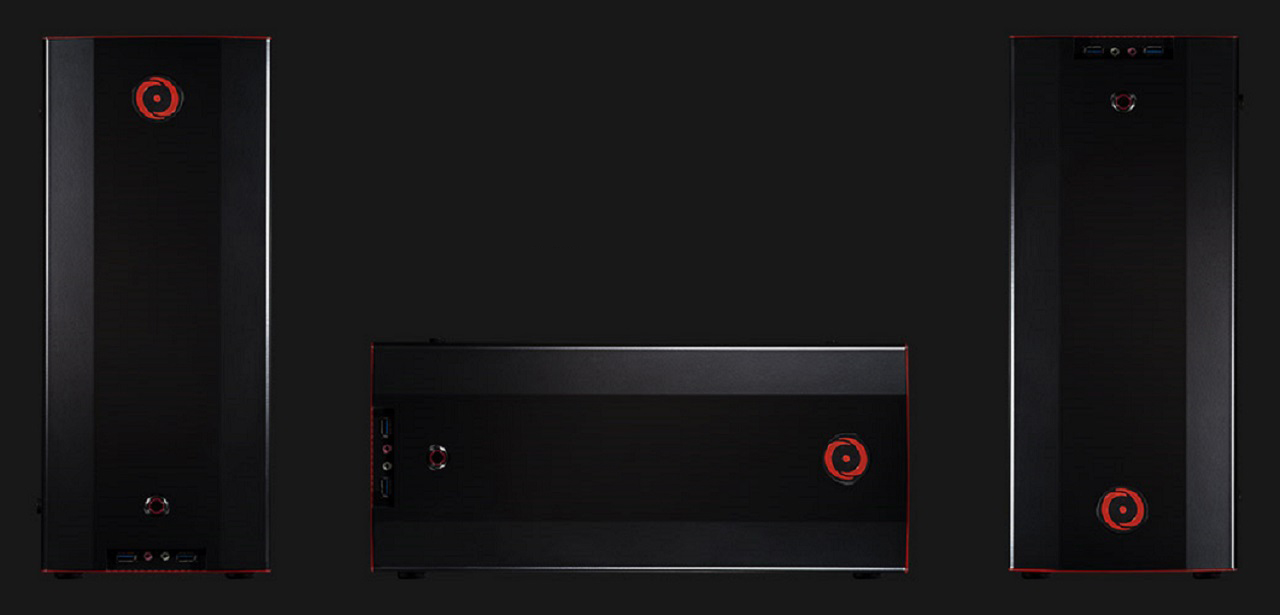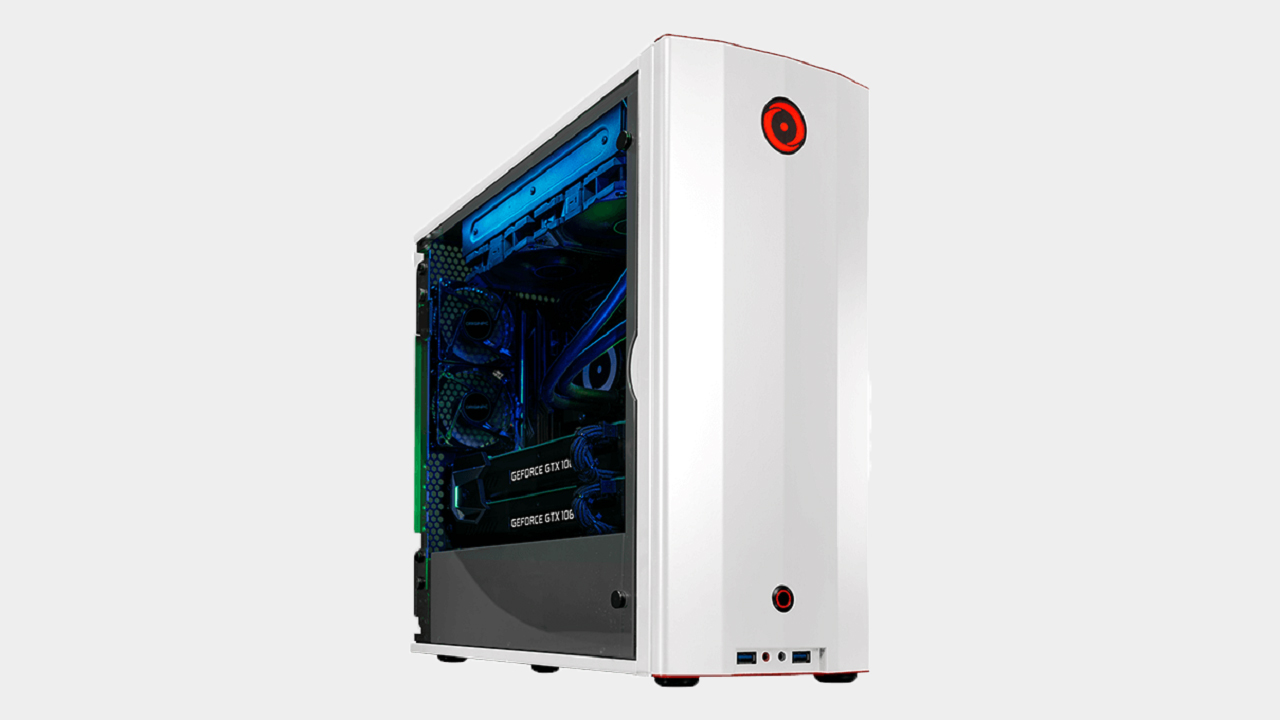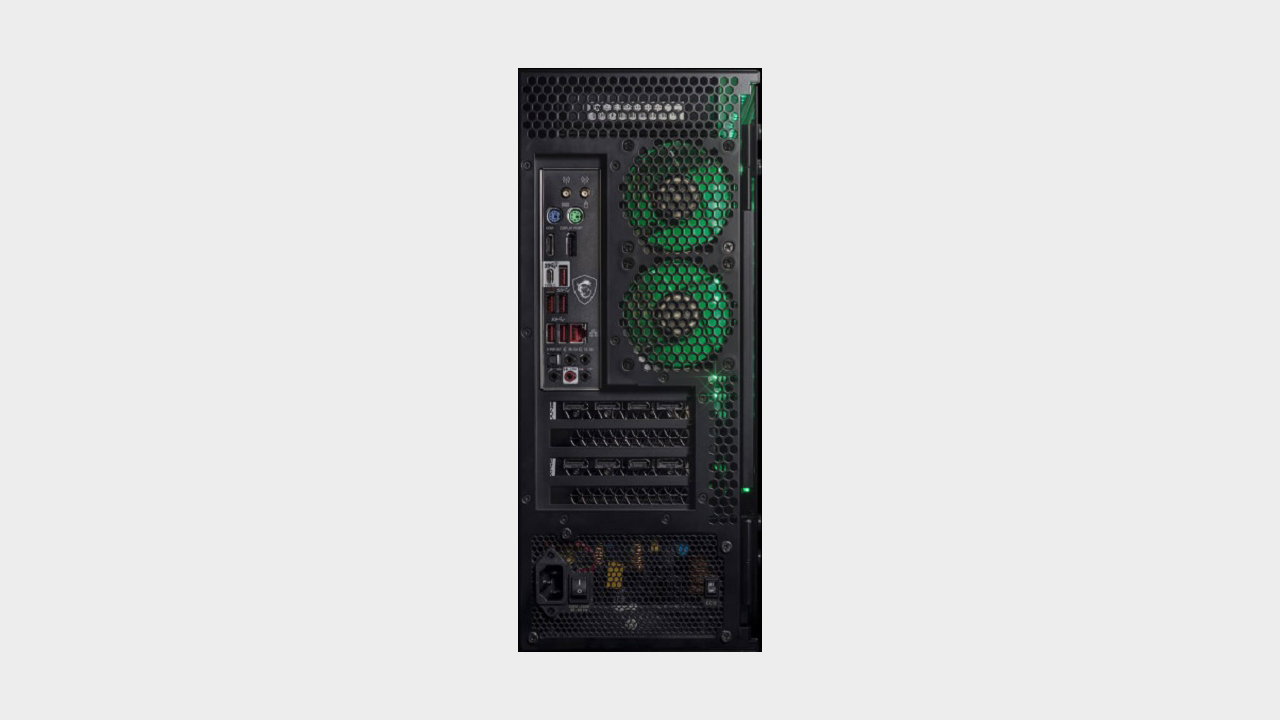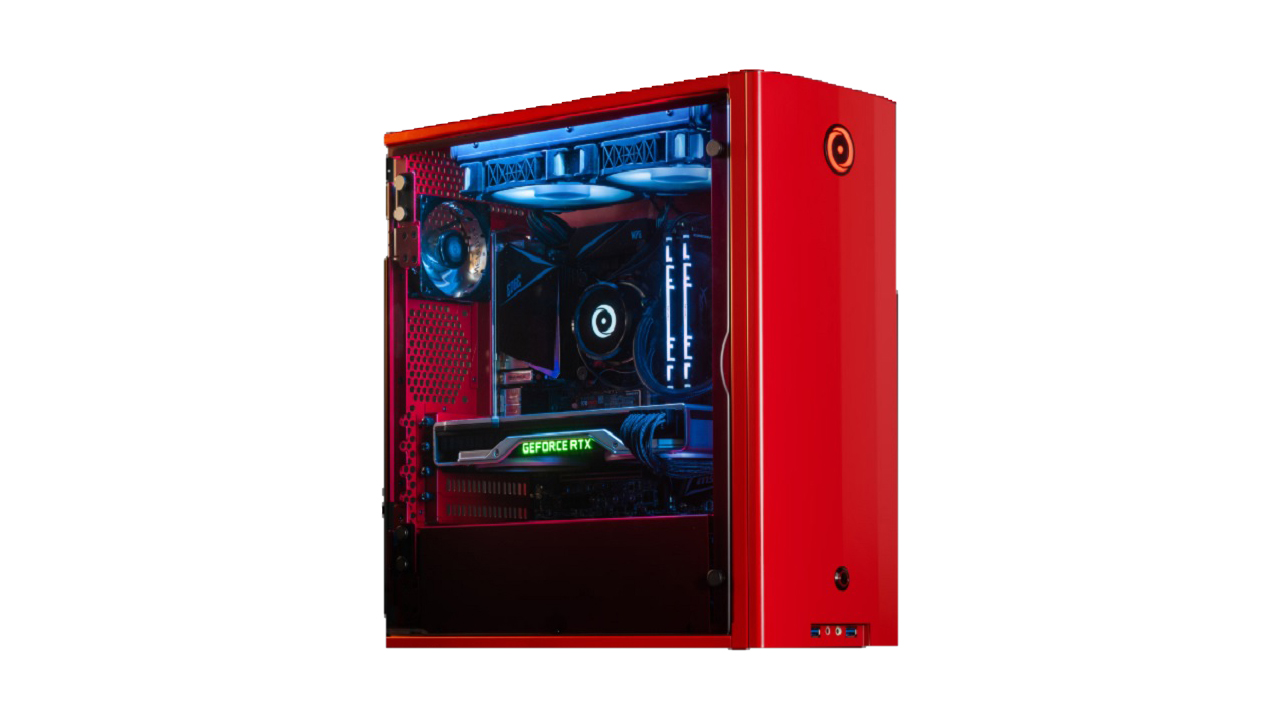GamesRadar+ Verdict
The Neuron is a well equipped gaming PC capable of running games in 4K Ultra at 30FPS, but it generates quite a lot of noise and lacks a few features we look for in high-end machines.
Pros
- +
Great performance at a competitive price
- +
High customizable case and configurable interior
- +
Easy, toolless case access
Cons
- -
Loud
- -
Lacks easy access to cable management and dust filters
Why you can trust GamesRadar+
Now that Nvidia's 20-series of cards have properly made their way into the wild, we're starting to see a broad range of prebuilt options that sport the DXR capable cards, building a foundation for the ray traced future Nvidia has largely staked their reputation on. The Origin Neuron is one of the crop of these new, high-powered desktops, and it's a machine sporting a number of interesting dimensions.The PC we received for review was outfitted with an RTX 2080, but any card from Nvidia's RTX line is available all the way up to the Titan, as well as the brand new GTX 1660, a bargain option with the RTX and machine learning features stripped away.
A company founded by a number of ex-Alienware staffers, Origin has made a name for itself building desktops in proprietary cases marked by their broad customizability. The Neuron proudly carries this banner forward, offering a machine that can be tailored to suit your needs and aesthetic in an impressive number of ways, that only falls short in terms of the volume of its many, large fans.
GPU: GeForce RTX 2080 Founder's Edition 8GB (Overclocked)
CPU: AMD Ryzen 7 2700X 3.7GHz (4.3GHz TurboBoost) (Overclocked)
Motherboard: MSI B450M Bazooka
RAM: Kingston HyperX 16GB DDR4 3000MHz (2 X 8GB)
Storage: 512GB Samsung 970 Pro PCIe NVMe M.2 SSD, Seagate 2TB SATA HDD
PSU: 750 Watt EVGA SuperNOVA G3
CPU Cooling: Origin Frostbyte 240 Sealed Liquid Cooling System
Dimensions: W: 6.75" H: 16.25" L: 15.0"
Weight: 18 lbs.
Warranty: Lifetime 24/7 U.S. Based Support and Lifetime Free Labor. 1 Year Part Replacement & 45 Day Shipping Warranty
MSRP: $2,399
Origin Neuron - Design

The design of the Neuron is largely what you make it. You can order the proprietary Neuron case in one of three base colors (red, black, and white - we got the white model), or for another $329 you can have it in a broad palette of metallic shades, ranging from a subdued grey to really garish, vibrant purple or yellow. Tag on an additional $199 and you can get a design UV printed on the beautiful tempered glass side panel of the machine, either one of Origin's three base designs or a custom image you submit yourself. Alternately, for $249, you can have them apply a textured print to the glass, for a tactile experience if you're way into frequently handling your PC (no judgement).
Another interesting (and perhaps more practical) element of the Neuron's design is the way it can be oriented either vertically, upside-down, or horizontally, depending on where you affix the magnetic feet. This is nice for a number of reasons - it makes tucking the unit into an entertainment center or or any horizontal space plausible, and allows you to invert the machine so the power button, USB, and audio jacks are oriented towards the top (though why they're at the bottom of the rig by default is a bit baffling).
The interior of the case is also beautifully bathed in an RGB light show, including the logo on the RTX 2080. The overall design of the case is pretty straightforward in terms of form factor, a tall rectangle speckled with a massive number of ventilation holes which unfortunately aren't shielded by dust filters of any kind. The shape of the case is very standard, leaving the heavy lifting in terms of visual flair up to lighting, coloration, and designs on the glass.
Origin Neuron - Performance

Our Neuron build came with a factory overclocked Ryzen 7 2700x, a powerful AMD CPU that should be a match for even more demanding workload applications and will manhandle games, as well as an overclocked RTX 2080 that performed admirably even at 4K. While you won't reach silky smooth 60+ frames a second in most games at 4K, our tests on Shadow of the Tomb Raider and Total War: Warhammer II showed that the machine was capable of rendering in excess of 30 FPS consistently. Only Metro Exodus, probably the most visually demanding game currently on the market (particularly with ray tracing enabled at the highest setting), pushed 4K FPS under the 30 mark on its Extreme graphics setting. I was able to get a consistent 30 plus in Metro by tweaking most of its settings down to the Medium range whilst leaving ray tracing enabled at Ultra.
If you do crave a smooth and reliable 60 FPS, dropping down to 1440p will get you there in most games on Ultra. Even Metro Exodus kicked out mid-to-high 40s at 1440p Extreme. The Neuron is a very impressive QHD performer, so if you've got a high refresh rate 1440p monitor, this machine is a perfect match for your display.
Of course, all that overclocked performance comes at a price. In the Neuron's case, the price you pay is largely audible due to its liquid cooling and host of fans. Even toggling said fans in BIOS to the more energy expensive DC rather than PWC setting, there was a significant amount of noise coming out of the case, the machine working hard at load to keep the system cool and efficient.
Cinebench: CPU: 1773 cb; single core: 169 cb
CrystalDiskMark:
SSD: Read: 3565.4 MB/s Write: 2347.8 MB/s
HDD: Read: 186.3 MB/s Write: 183.5 MB/s
PC Mark 10 Express: 4490
3D Mark Fire Strike Extreme: 12,728
3D Mark Fire Strike Ultra: 6696
Shadow of the Tomb Raider:
4K Ultra: 31
1440p Ultra: 64
Total War: Warhammer II:
4K Ultra: 33.3
1440p Ultra: 60.7
Metro Exodus:
4K Extreme: 22.83
1440p Extreme: 45.41
1440p Extreme, ray tracing disabled: 46.64
Origin Neuron - Features

Aside from the aforementioned ability to change the orientation of the machine, the Neuron has a couple of other handy features. The gorgeous pane of tempered glass that showcases the neatly arranged interior can be swung open without any tools or tampering. There's a little notch in the glass where you can tuck a finger in and open up the case for tinkering and upgrading, and it's held snugly in place by magnets when closed. The machine is also generously equipped with ports, which as someone with an embarrassment of USB and other peripherals is a godsend. It's bristling with a pair of USB 3.0 ports and two audio jacks (in/out) on the front, as well as an additional four USB 3.1 and four USB 2.0 ports on the back, on top of standard PS/2, Ethernet, audio, and HDMI/DVI ports.
On the other hand, the PSU and cables are enclosed in a bulky shroud that requires you to remove three screws to shift aside, which is a bit of annoyance, And as I noted in design, the total lack of dust covers or filters of any kind, combined with the massive number of ventilation holes drilled into the exterior of the case, will permit dust and detritus easy access to infiltrate the interior.
Overall - should you buy it?
The Neuron is great machine that you can customize to your heart's content prior to ordering, and that's relatively easy to upgrade and has enough overheard to enhance as obsolescence demands. The noise issue is a fairly major one, but if you tend to game with headphones on or with your games blaring at medium to high volume, you're unlikely to notice the machine the majority of the time. That said, if you tend to play in a quieter environment, the legion of fans spinning up and droning away will likely be a distraction - in either case, I strongly recommend the DC option to the significantly louder PWC setting.
If noise isn't an issue, the Neuron is an excellent choice, particularly if you're the sort of PC user who likes to have a great deal of control over the look and specs of your machine. Our review unit, priced at $2,399, is a solid value and not much pricier than the cost of putting this machine together yourself, particularly if you factor in the lifetime 24/7 support and year long parts warranty. Aside from the noise caveat, it's easy to recommend if you're looking for a machine to step into the world of 4K gaming, and even easier if you're happy to get fantastic frame rates out of QHD games at the highest settings.
Alan Bradley was once a Hardware Writer for GamesRadar and PC Gamer, specialising in PC hardware. But, Alan is now a freelance journalist. He has bylines at Rolling Stone, Gamasutra, Variety, and more.




